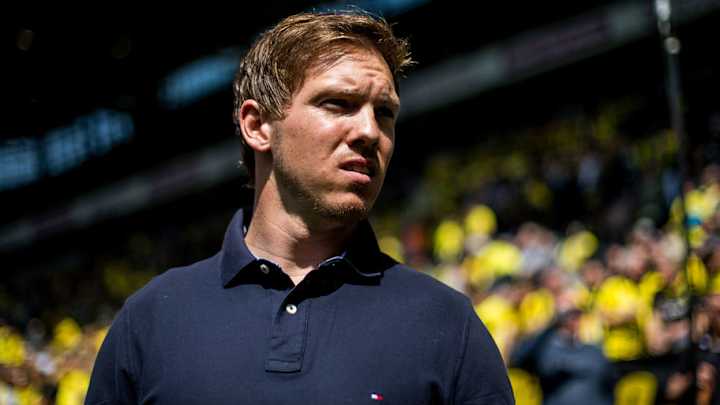How 30-year-old Hoffenheim manager Julian Nagelsmann Could Revolutionize Soccer

Julian Nagelsmann. The young manager was forced to end his playing career at the age of 20 after suffering constant knee injuries. Nagelsmann has changed the face of coaching in Germany since his appointment as TSG Hoffenheim manager in February 2016.
Last season's Bundesliga campaign was a rollercoaster of excitement. Bayern Munich being challenged by Ralph Hasenhüttl's youthful RB Leipzig side at the top of the table and VfL Wolfsburg's relegation threatened campaign were two highlights of the 2016/17 season.
Last season also saw the first full Bundesliga campaign for 30-year-old Nagelsmann at the Rhein-Neckar-Arena, guiding Hoffenheim to Champions League qualification for the first time in the club's history.
Julian Nagelsmann is the youngest ever winner of Germany’s Manager of the Year award.
— Squawka (@Squawka) July 23, 2017
30 years old today. 🎉 pic.twitter.com/kushEVr8W3
Born in southwestern Bavaria, the German manager has the potential to change modern football in the same way Arsène Wenger did when he arrived at Arsenal in 1996. Here we take a look at Nagelsmann's formation, tactics and why more clubs need to adapt to his system.
One key factor in Nagelsmann's success is his unorthodox use of a 3-5-2 formation. Although using three centre backs is becoming the fashionable thing to do in modern football, Nagelsmann has utilised his formation especially well to get the best out of the players he has at his disposal.
Starting at the back, 27-year-old goalkeeper Oliver Baumann's excellent distribution allows the rest of Nagelsmann's side, in particular the most attacking four players, to have a great deal of positional flexibility about their game.
Although the ability and importance of Niklas Süle has been clear in Nagelsmann's success, the signing of midfielder Kevin Vogt from FC Köln has been the catalyst in propelling relegation threatened Hoffenheim into the Champions League places.
Nagelsmann has converted the versatile German into a star centre-back for Hoffenheim, giving Vogt the licence to break formation, move forward and assist the holding midfielder when they're overloaded in midfield.
Last seasons holding midfielder was club captain Sebastian Rudy, although the 27-year-old has since moved to Bayern Munich. Rudy, playing as a defensive midfielder, was often the first point of call for Hoffenheim attacks last season.
His ability to pick out either of the two strikers in Sandro Wagner and Andrej Kramarić was the catalyst in Hoffenheim's central attacking threat last season.
In Nadiem Amiri (20) and Kerem Demirbay (24), Nagelsmann had to the perfect midfielders who supported Hoffenheim's two strikers. What was noticeable about Amiri and Demirbay last season was their willingness to run into wide positions, knowing that the stability of the Hoffenheim back six would cover them if possession was turned over to the opposition.
With Wagner and Kramarić, Nagelsmann discovered an incredible partnership that provided Hoffenheim with 26 goals and 12 assists last season. Wagner, a former Bayern Munich player, was the perfect target man for Hoffenheim last season and his ability to hold the ball up for Kramarić and his midfielders was vital in the club's success.
In comparison, former Leicester City striker Kramarić is a much more technical player who loves the ball at his feet.
With both strikers signed during Nagelsmann's tenure last summer, Hoffenheim's revitalised attack caused problems for the biggest teams in the Bundesliga last season.
The 30-year-old manager has the world at his feet having taken Hoffenheim from one point away from relegation to the Champions League.
The revolutionary approach Wenger brought to English football, in terms of a player's diets, the way they train, and being a key figure in popularising the 4-3-3 formation, will likely never be matched by anyone
Nagelsmann has however proven that his unusual use of the 3-5-2 can get the best out of his players and that a team's success is much more down to the quality of the squad as a whole rather than individual brilliance, something that could (and should) be adopted by more teams across Europe's top five leagues.
